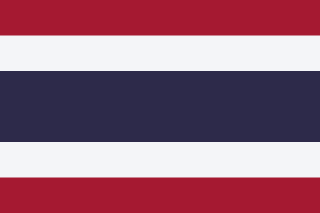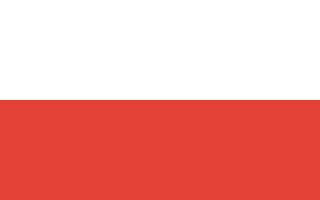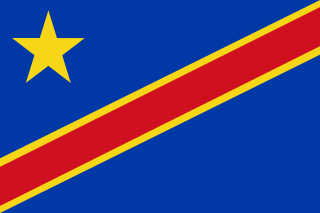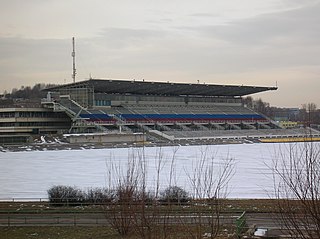Related Research Articles

Denmark competed at the 1968 Summer Olympics in Mexico City, Mexico. 64 competitors, 60 men and 4 women, took part in 53 events in 11 sports.

Ethiopia competed at the 1968 Summer Olympics in Mexico City, Mexico. 18 competitors, all men, took part in 13 events in 3 sports.

The Netherlands competed at the 1968 Summer Olympics in Mexico City, Mexico. 107 competitors, 82 men and 25 women, took part in 52 events in 11 sports.

New Zealand at the 1968 Summer Olympics was represented by a team of 52 competitors, 47 men and five women, who took part in 26 events across eight sports. Selection of the team for the Games in Mexico City, Mexico, was the responsibility of the New Zealand Olympic and British Commonwealth Games Association. New Zealand's flagbearer at the opening ceremony was Don Oliver. The New Zealand team finished 27th on the medal table, winning a total of three medals, one of which was gold.

Belgium competed at the 1968 Summer Olympics in Mexico City, Mexico. 82 competitors, 77 men and 5 women, took part in 55 events in 13 sports.

Belgium competed at the 1964 Summer Olympics in Tokyo, Japan. 61 competitors, 60 men and 1 woman, took part in 36 events in 13 sports.

Thailand competed at the 1968 Summer Olympics in Mexico City, Mexico. 41 competitors, all men, took part in 18 events in 6 sports.

Athletes from the Socialist Federal Republic of Yugoslavia competed at the 1968 Summer Olympics in Mexico City, Mexico. 69 competitors, 59 men and 10 women, took part in 54 events in 11 sports.

France competed at the 1968 Summer Olympics in Mexico City, Mexico. 200 competitors, 169 men and 31 women, took part in 107 events in 16 sports.

Italy competed at the 1968 Summer Olympics in Mexico City, Mexico. 167 competitors, 152 men and 15 women, took part in 103 events in 17 sports.

Sweden competed at the 1968 Summer Olympics in Mexico City, Mexico. 100 competitors, 86 men and 14 women, took part in 95 events in 13 sports.

Poland competed at the 1968 Summer Olympics in Mexico City, Mexico. 177 competitors, 140 men and 37 women, took part in 112 events in 16 sports.

South Korea, as Korea, competed at the 1968 Summer Olympics in Mexico City, Mexico. 54 competitors, 41 men and 13 women, took part in 43 events in 11 sports.

Congo-Kinshasa competed at the 1968 Summer Olympics in Mexico City, Mexico. It was the first time that the nation was represented at the Olympic Games. Five competitors, all men, took part in two events in the cycling.

Barbados competed in the Summer Olympic Games for the first time at the 1968 Summer Olympics in Mexico City, Mexico. Nine competitors, all men, took part in ten events in five sports.
Desmond "Des" Ronald Thomson is a former racing cyclist from New Zealand.

For the 1968 Summer Olympics, a total of twenty-five sports venues were used. Most of the venues were constructed after Mexico City was awarded the 1968 Games. Mexican efforts in determining wind measurement led to sixteen world records in athletics at the University Olympic Stadium. All four of the football venues used for these games would also be used for both of the occurrences that Mexico hosted the FIFA World Cup, in 1970 and 1986.
Jørgen Emil Hansen is a Danish cyclist who competed in the Summer Olympics three times. He took part in the men's 100 km team time trial in the 1968, 1972, and 1976 Olympic Games, and in the men's individual road race in 1968 and 1976. The 1976 100 km time trial team, which also included Verner Blaudzun, Gert Frank and Jørn Lund, won a bronze medal for Denmark. It finished ahead of West Germany and Czechoslovakia for third place, behind the Soviet Union and Poland.

For the 1980 Summer Olympics, a total of twenty-eight sports venues were used. The first venue used for the Games was built in 1923. With the creation of the Spartakiad in Moscow in 1928, more venues were constructed. Central Lenin Stadium Grand Arena was built in 1956 for that year's versions of the Spartkiad. A plan in 1971 to construct more sports venues by 1990 was initiated, but accelerated in 1974 when Moscow was awarded the 1980 Games. The new venues to be used for the Games were completed in 1979. During the Games themselves at the permanent road cycling venue, the first ever constructed, the largest margin of victory was recorded in the individual road race cycling event since 1928. The Grand Arena hosted the football final that was played in a rainstorm for the third straight Olympics. After the 1991 break of the Soviet Union, the venues in Kiev, Minsk, and Tallinn would be located in Ukraine, Belarus, and Estonia, respectively. Luzhniki Stadium, formerly Grand Arena, continues to be used, and it was affected by the Luzhniki disaster in 1982. The stadium served as host for the IAAF World Championships in Athletics in 2013. Another venue, the Moscow Canoeing and Rowing Basin, served as host to the ICF Canoe Sprint World Championships in 2014. In December 2010, Russia was awarded the 2018 FIFA World Cup with Luzhniki Stadium and Dynamo Stadium proposed as venues for those events.
References
- ↑ "Ciclismo México 68" (PDF). Retrieved 14 August 2024.

